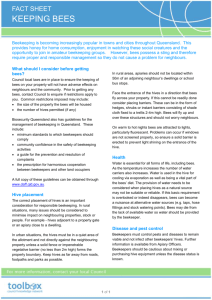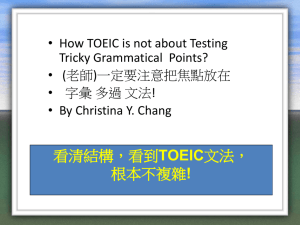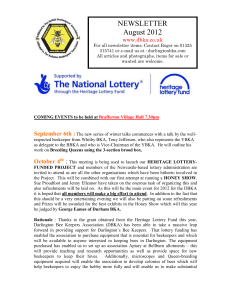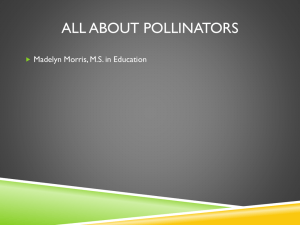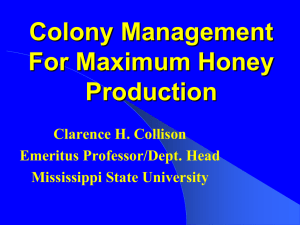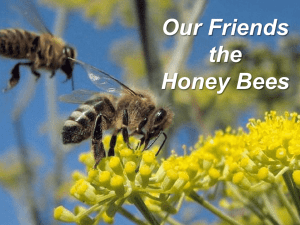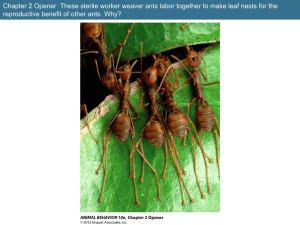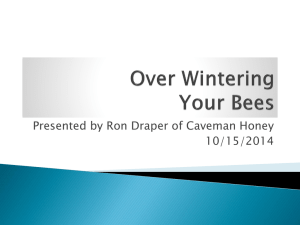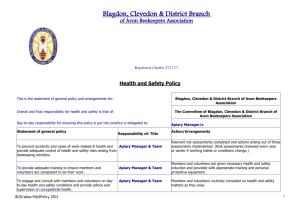Beekeeping Requirements
advertisement
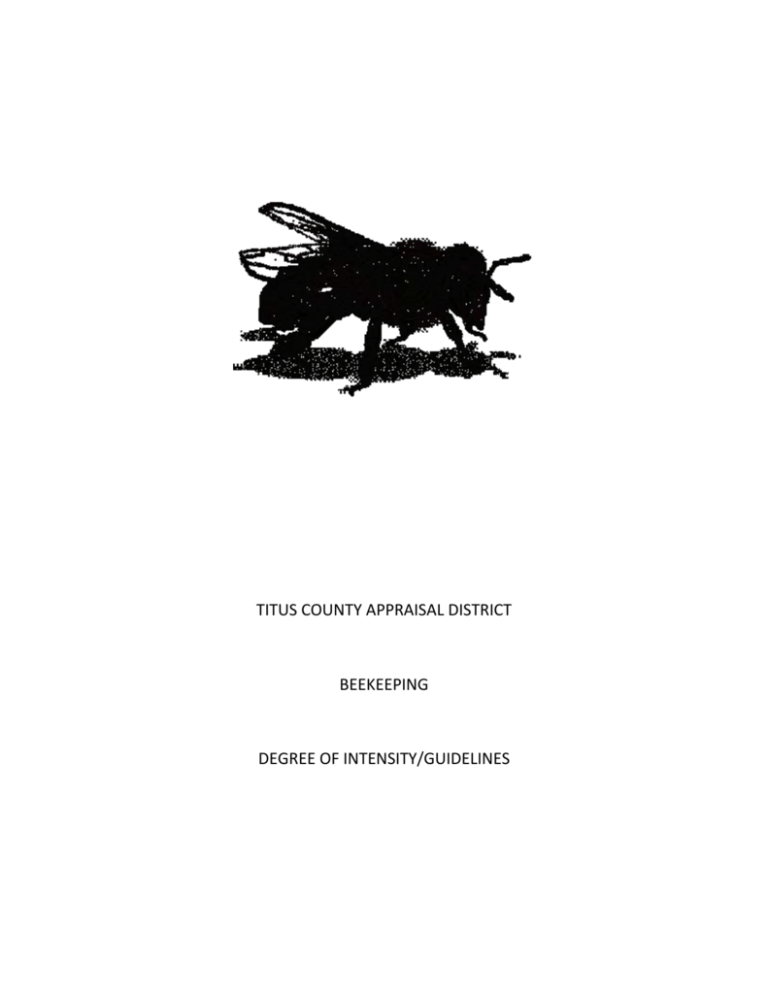
TITUS COUNTY APPRAISAL DISTRICT BEEKEEPING DEGREE OF INTENSITY/GUIDELINES Sec. 23.51(2) of the Property Tax Code identifies beekeeping as an agricultural use and states this process shall qualify for agricultural use productivity valuation if used for pollination or the production of human food or other tangible products having a commercial value. “Agricultural use” in Section 23.51 (2) states “the term also includes the use of land to raise or keep bees for pollination or for the production of human food or other tangible products having commercial value, provided that the land used is not less than 5 or more than 20 acres.” Acreage requirements as stated in the tax code has set a minimum of five (5) acres and a maximum of twenty (20) acres to be dedicated to this process. The property owner must be able to provide a five year history of beekeeping or other agricultural use. Definitions as identified in Section 131.001 of the Texas Agricultural Code define: “Apiary” is a place where six or more colonies of bees or nuclei of bees are kept. “Colony” means the hive and its equipment and appurtenances including bees, comb, honey, pollen, and brood. “Abandoned apiary, equipment, or bees” is an apiary, equipment, or a colony of bees that is not regularly maintained or attended in accordance with this chapter or rules or quarantines adopted under this chapter. “Beekeeper” is a person who owns, leases, or manages one or more colonies of bees for pollination or the production of honey, beeswax, or other by products, either for personal or commercial use. “Bee” is used to describe any stage of the common honeybee, Apis mellifera species. “Director” is the director of the Texas Agricultural Experiment Station. “Disease” is the American foulbrood, European foulbrood, or any other contagious or infectious disease of honeybees, parasites, or pests that affect bees or brood. “Equipment” includes hives, supers, frames, veils, gloves, tools, machines, or other devices used for the handling and manipulation of bees, honey, pollen, wax, or hives, including, storage or transporting containers for pollen, honey, or wax, or other apiary supplies used in the operation of an apiary of honey house. “Inspector” is the chief apiary inspector. “Label” as a noun, is written or printed material accompanying a product and furnishing identification or description. The term includes material attached to a product or its immediate container and material inserted in an immediate container or other packaging of a product. “Label” as a verb means to attach or insert a label. “Nucleus” is a small mass of bees and combs of brood used in forming a new colony. “Pollen” is dust like grains formed in the anthers of flowering plants in which the male elements or sperm are produced. “Pure honey” is the nectar of the plants that has been transformed by and is the natural product of bees in the comb or has been taken from the comb and is packaged in a liquid, crystallized, or granular form. “Queen apiary” is an apiary in which queen bees are reared or kept for sale, barter, or exchange. The degree of intensity for the required acreage are as follows: 5 acres 7.5 acres 10 acres 12.5 acres 15 acres 17.5 acres 20 acres 6 active hives or colony = 1 apiary 7active hives or colony 8 active hives or colony 9 active hives or colony 10 active hives or colony 11 active hives or colony 12 active hives or colony = 2 apiary The hives must be alive and active remaining on the property for at least 7 months of the year. Beekeeping use can be described as pollination, production human food, and the production of products. Pollination transfers the reproduction of plants enabling fertilization and sexual reproduction. Production of human food includes honey, bee pollen, honey candies, and sweets. Production of products includes candles, beeswax, and soaps. Bees need adequate sources of nectar and pollen throughout the growing season of April to September. Bees forage in a 3 mile radius from the hive. The intent of this new legislation was to encourage people to raise bees (*Dennis Herbert). The productivity evaluation calculated for beekeeping will remain as the prior current land use. The five year history of productivity use is required. References and sources: State Property Tax Code Section 23.51 (2) *Dennis Herbert Texas Agricultural Code Section 131.001 Texas Beekeepers Association Webb County Appraisal District Agricultural Advisory Board members of Titus County Appraisal District *Dennis Herbert assisted in the legislation of passing this law regarding bees. He has worked with the comptroller’s office to develop implementation standards and guidelines for the production process.

